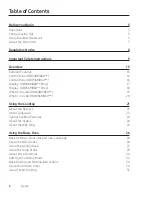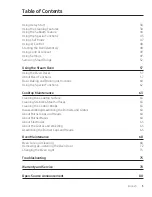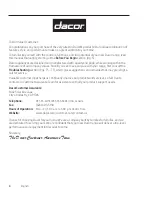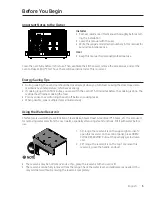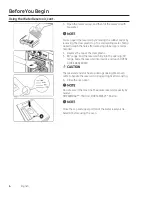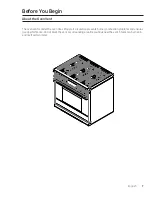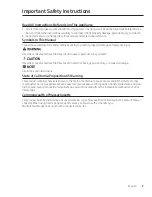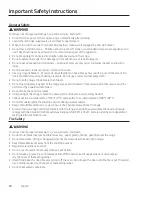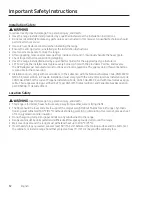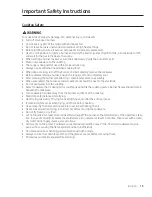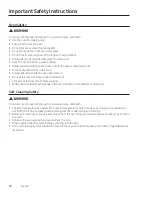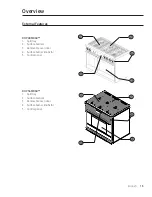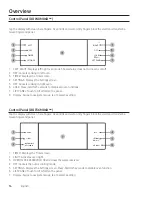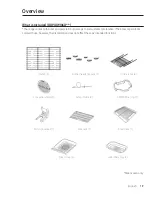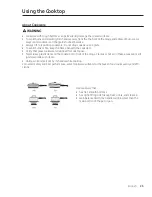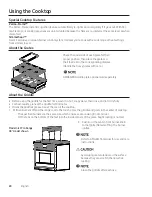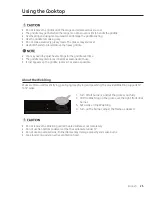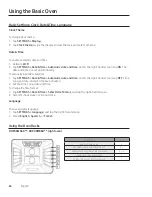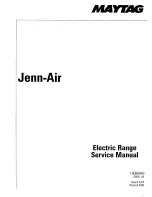
11
English
Important Safety Instructions
Gas Safety
If you smell gas:
•
Close the range's gas-supply valve and evacuate the building
•
Do not use a flame or sparking device (e.g., match, butane lighter or clicker, arc lighter)
• Do not turn on any gas or electric appliances
• Do not plug in a power cord or touch an electrical switch
• Do not use any phone in your building
•
Immediately call your gas supplier from a neighbor's home, and follow the supplier’s directions (if unable to
reach the gas supplier, call the fire department).
Checking For Gas Leaks
Do not use a flame to check for leaks. With a brush, spread a soap-and-water solution around the area in ques
-
tion. If there is a gas leak, small bubbles will appear in the solution. If unsure, call for professional help.
Electrical and Grounding Safety
To reduce risk of property damage, fire, personal injury, and death:
• Plug the range into a grounded 3-prong outlet.
• Do not remove the ground prong.
• Do not use an adapter or an extension cord.
• Do not use a damaged plug, cord, or loose outlet or modify these components.
• Do not put a fuse in a neutral or ground circuit.
• Use a dedicated 240 Vac , 60 Hz, 50 Amp breaker for the 48" range and a 40 Amp breaker for the 36" range.
A time-delay fuse or circuit breaker is recommended.
• Do not connect the ground wire to plastic plumbing lines, gas lines, or hot water pipes.
• The range must be grounded, which reduces risk of electric shock by giving the current a safe path. The
range’s cord has a grounding plug, which must be firmly plugged into an outlet that is properly installed
and grounded per local regulations. If you are unsure your outlet is properly grounded, have a licensed
electrician check it.
• Electrical service to the range must conform to local codes, in the absence of which, it should meet the
latest ANSI/NFPA No. 70 – Latest Revision (for the U.S.) or the Canadian Electrical Code CSA C22.1 – Latest
Revisions.
• The owner shall ensure provision of proper electrical service.


